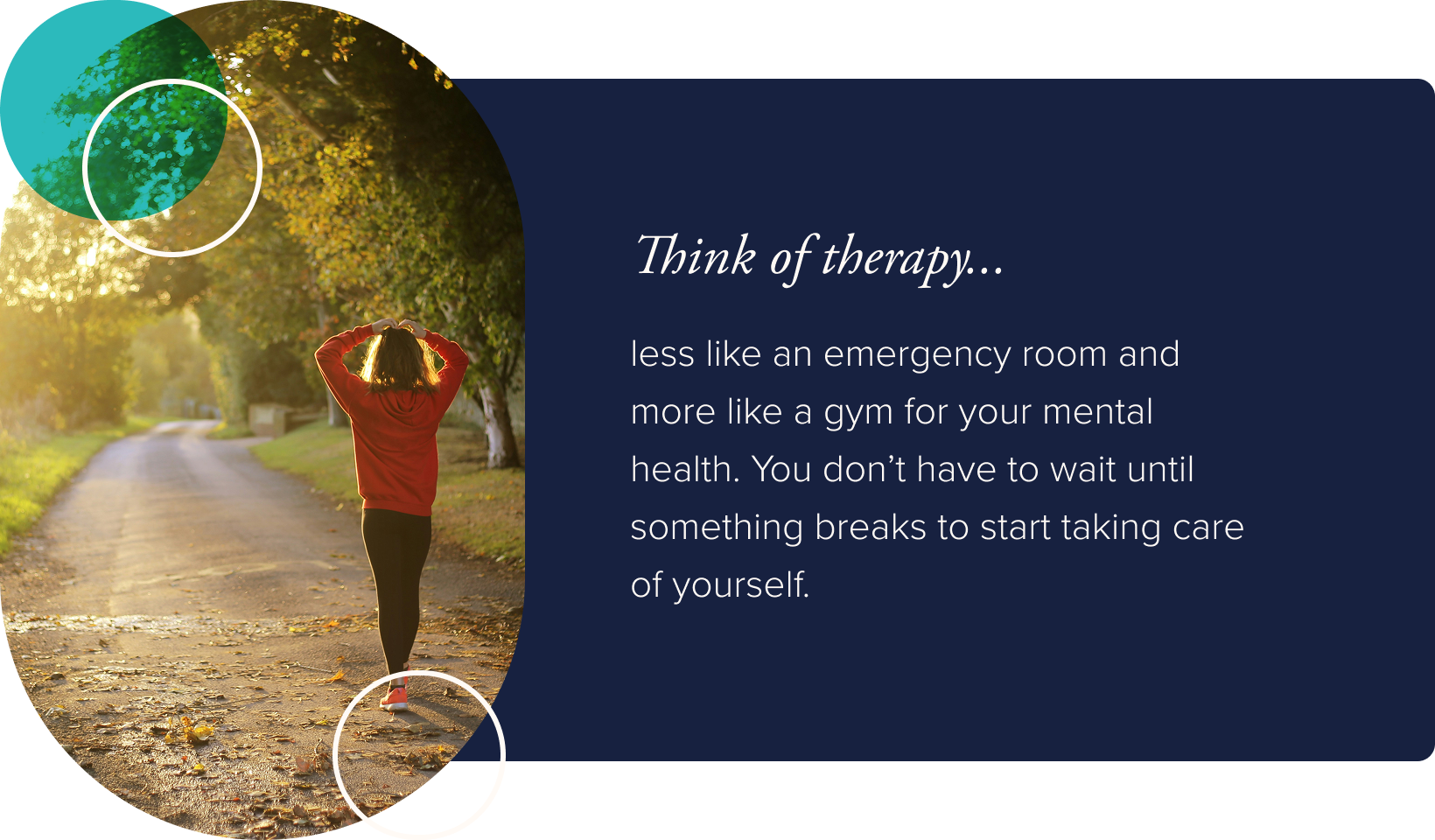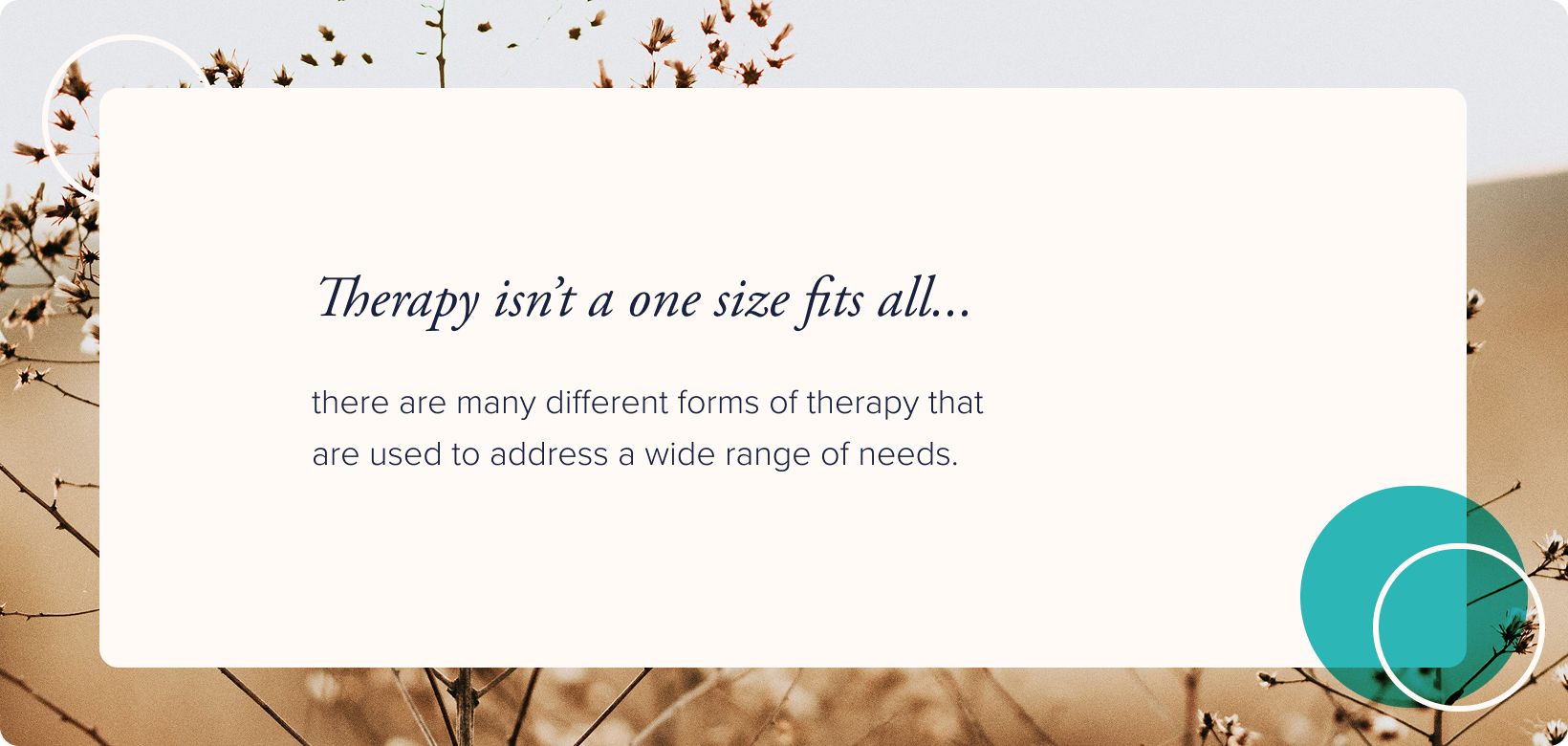
10 Reasons to Go to Therapy

One-on-One Counseling in Arizona for Life's Challenges
Every day is a chance to start over. Our trauma-informed therapists will meet you where you are — in person or online — so you can process your experiences and become the person you want to be.
Whether you’re struggling with something specific or just feeling a little stuck, therapy can be a space to understand yourself better, make thoughtful changes, or simply feel more grounded. You don’t need a formal diagnosis or a rock-bottom moment to experience the benefits of therapy.
To understand why therapy can make a difference for just about anyone, let's take a look at several everyday reasons that therapy might be worth considering, even if things seem fine on the surface.
Do I Need a Therapist?
No matter what you’re going through or what stage of life you’re in, you can always benefit from seeing a therapist. Whether you’re going through hard times and need some guidance or you’re going through good times and want to keep growing, therapy can provide you with valuable support and insight.
Think of therapy less like an emergency room and more like a gym for your mental health. You don’t have to wait until something breaks to start taking care of yourself.

Am I Bad Enough for Therapy?
It’s common for people to believe that they're not suffering enough to deserve mental health treatment, or that their problems aren’t serious enough to justify seeing a therapist. This belief is sometimes referred to as mental health imposter syndrome, meaning you feel like your struggles aren’t valid or serious enough to qualify for help.
The truth is, therapy is a valuable tool for anyone who wants support, guidance, or a safe place to process life. If something is bothering you, no matter how serious or insignificant it might seem, that’s reason enough to go to therapy.
Don’t know what to discuss in therapy? Read our related article to learn what to talk about in therapy.
10 Reasons to Go to Therapy
Even if you haven’t received a diagnosis for a mental health issue before, there are several reasons why you should consider going to therapy.
Ten common reasons why someone should go to therapy include:
- Stress — Chronic stress takes a toll on both the body and mind, and therapy can teach you strategies for managing it effectively.
- Grief — Processing a significant loss can be incredibly difficult to do alone. Therapy provides a supportive place to heal and learn how to cope with troubling emotions.
- Troubled relationship patterns — If you find yourself repeating unhealthy dynamics in friendships, family, or romantic relationships, therapy can help you break the cycle.
- Want to date but you have some things to work through — Therapy can help you prepare for a relationship and work through the problems that are holding you back, whether it’s self-esteem issues, past relationship wounds, or anxiety.
- You’re about to go through a big change — Whether you’re starting a new job, moving, having a child, or going through a transition, therapy can help you navigate the complex emotions that come with experiencing a significant change.
- You just went through a life change — Even positive changes can feel overwhelming, but therapy gives you a space to talk it through and make sense of everything you're feeling.
- You have mental health concerns — A therapist can help you explore your concerns and, if needed, help you receive a formal diagnosis.
- You have low self-esteem — If your inner voice tends to be harsh or limiting, then it’s a sign that you should visit a therapist. Therapy can help you challenge and reshape those thoughts so you can build a kinder, more supportive relationship with yourself.
- You feel emotionally numb or disconnected — Emotional numbness is often a single sign of a larger mental health concern. Seeking help from a therapist can help you explore the root cause and start to reconnect with your feelings.
- You want to understand yourself better — Therapy doesn’t have to be about solving a problem. It can simply be a space for reflection, growth, and self-discovery.
These are just a few of the many valid reasons to seek therapy. Whether you want to work through something specific or simply want to understand yourself better, therapy offers valuable support and insight for anyone.

Read our related article to discover how to focus on yourself.
Finding the Right Type of Therapy for You
Therapy isn’t a one size fits all; there are many different forms of therapy that are used to address a wide range of needs.
Some therapy styles, like eye movement desensitization and reprocessing (EMDR) and cognitive processing therapy (CPT), are more intensive forms of therapy that target trauma-related mental health issues. Other therapy styles, like cognitive behavioral therapy (CBT) and dialectal behavior therapy (DBT) are commonly used to treat mental health issues like anxiety, depression, and mood disorders.
Even if you aren’t seeking help for a specific mental health issue, there are still therapy styles that can address your needs or concerns. For example, general counseling services can help you address the everyday issues in your life, and couples counseling or relationship issues therapy can help you improve communication, resolve conflicts, and strengthen your connections.

Explore our educational resources to see everything we treat and how we treat it.
Inner Balance—Effective, Individualized Counseling Services
Even if you’ve never been given a diagnosis having to do with mental health, anyone looking for a voice of support can benefit from some form of mental health therapy.
At Inner Balance, our mental health experts work closely with each client to identify their needs and develop a healthy strategy for achieving their goals. We approach all of our treatments with the belief that everyone deserves to feel like they are safe and that they belong.
Request a consultation today to connect with one of our mental health experts. We’re here to help you understand what’s going on and find the best way to support you.
Related blog articles
Sign up for our newsletter
Sign up with your email address to receive news and updates.
Get started
Request a consultation

-03%201.png)




